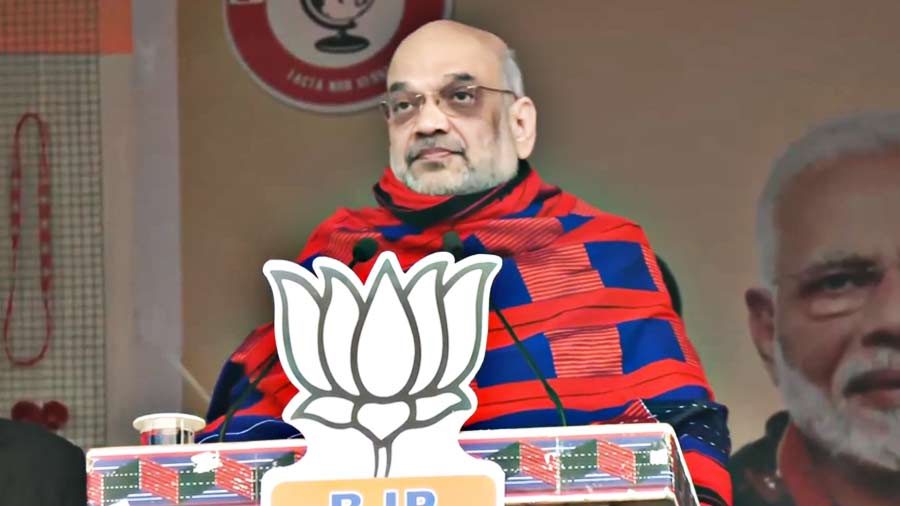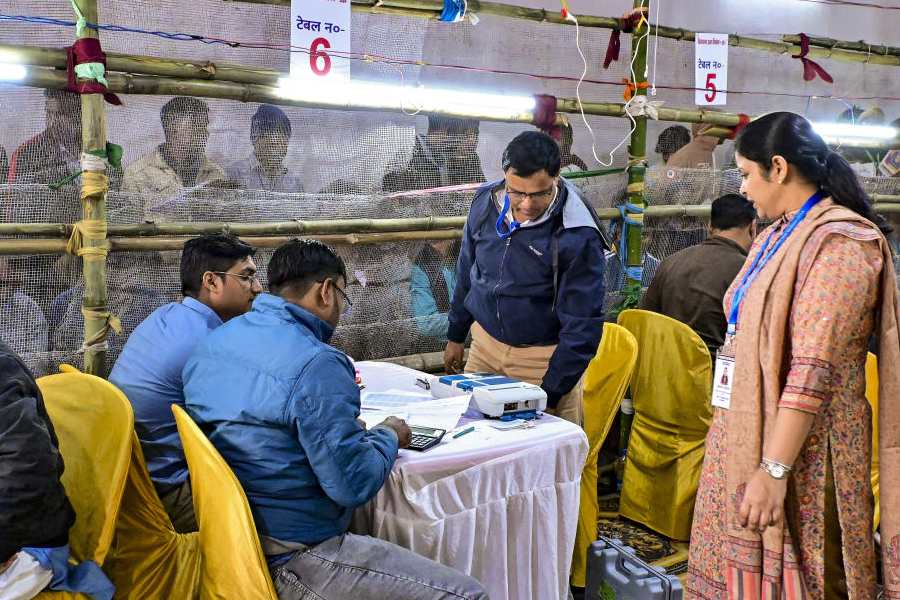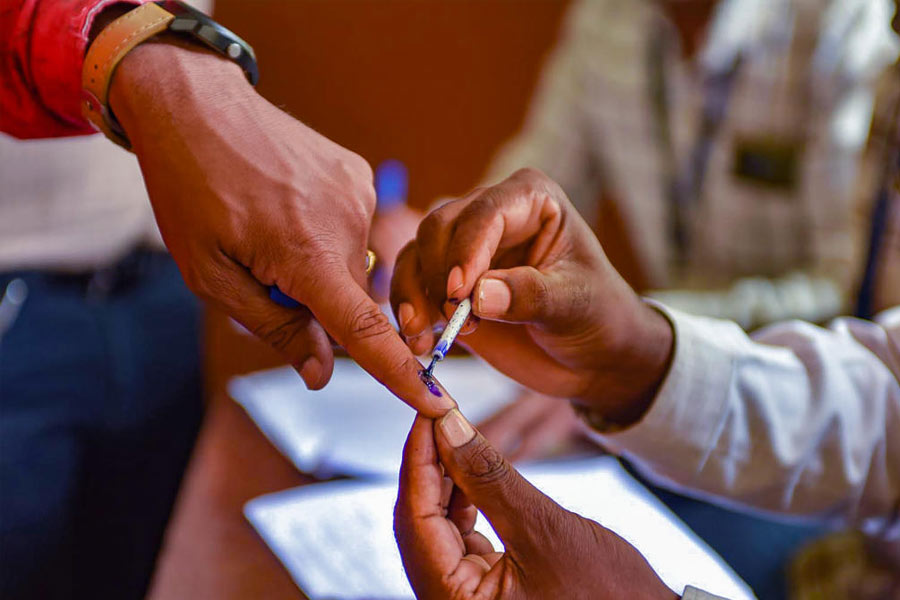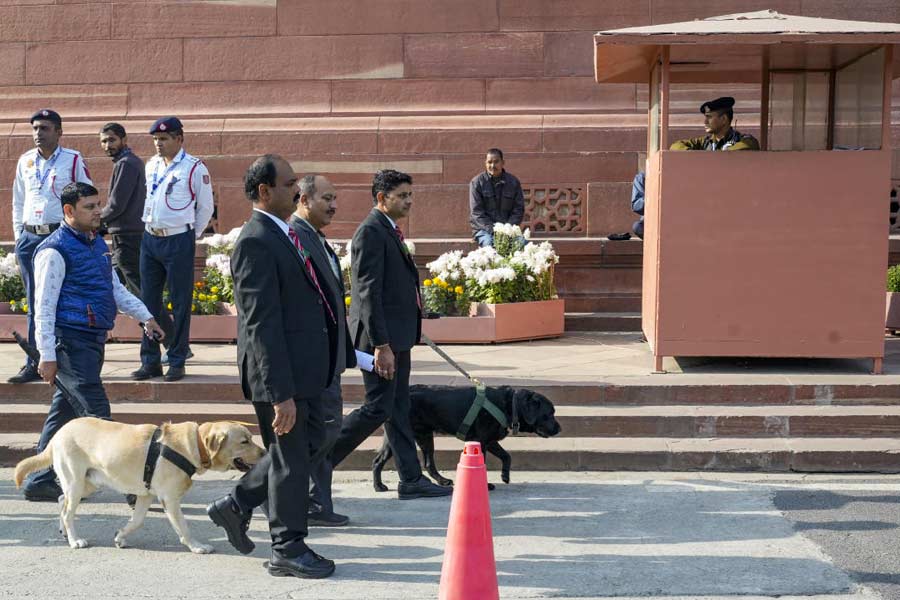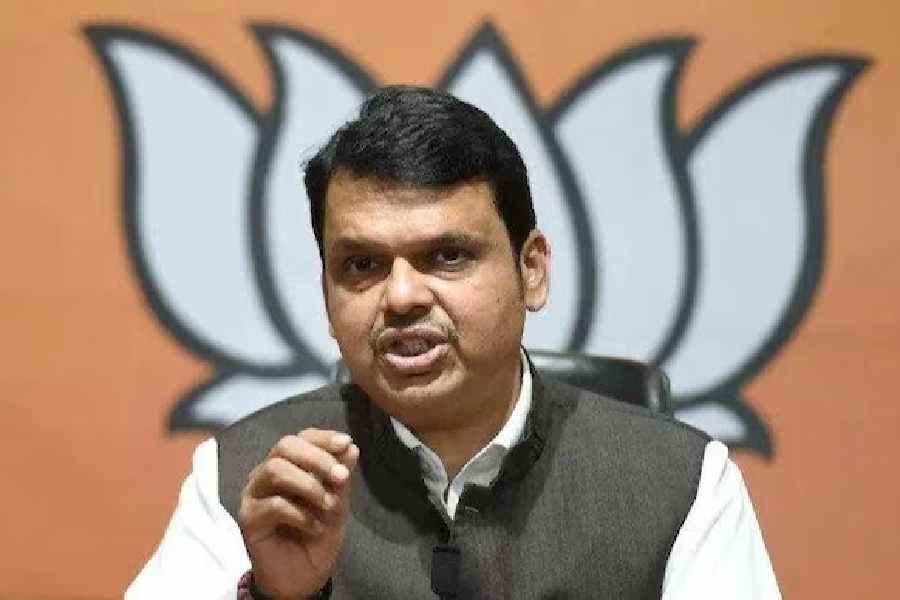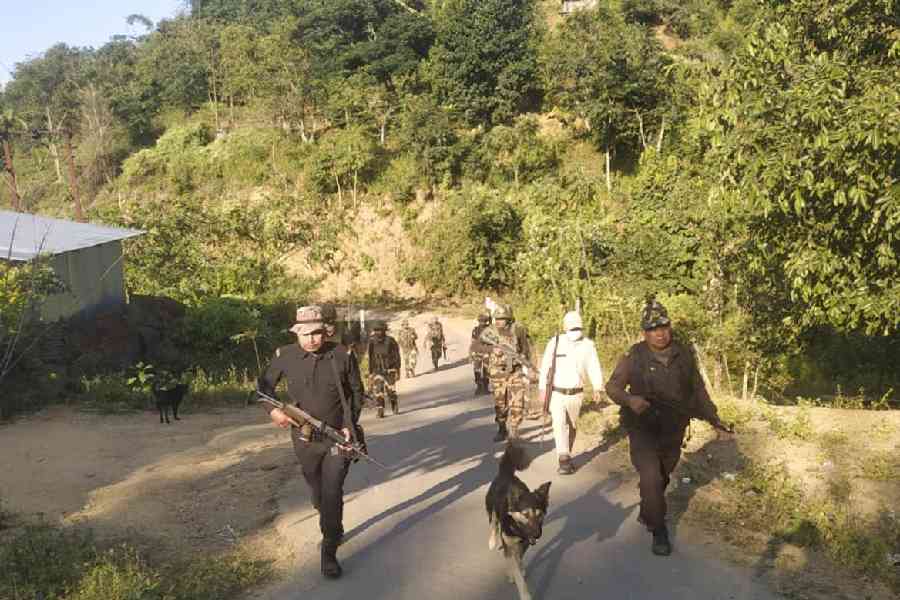In a clear message to China from this border village in Arunachal Pradesh, Union Home Minister Amit Shah on Monday said no one can dare cast an evil eye on India's territorial integrity and encroach even an "inch of our land." In remarks that come amid China's strong objections to his visit to Arunachal Pradesh and the three-year-long Sino-India border standoff in eastern Ladakh, Shah said the era when anyone could encroach the borderlands of India is over.
Shah also said the Modi government’s policy is to maintain peace with all countries but if anyone tries to occupy even an inch of India’s land the country would not tolerate it.
The home minister's statement from this village close to the China border also comes days after Beijing announced Chinese names for 11 places in Arunachal Pradesh which the neighbouring country claims as the "southern part of Tibet." "The era is gone when anyone could encroach on our lands. Now, not even land equal to 'sui ki noke' (inch of land) can be encroached...," Shah, who is on his first visit to the northeastern state as home minister, said at a public function after launching the 'Vibrant Village' programme in the border village of Kibithoo which is the country's easternmost point.
Shah, who will be in Arunachal Pradesh for two days, said no one can cast an evil eye on India because of the security forces who protect the country's frontiers.
"In 1962, whoever came to encroach this land had to return because of the patriotic people living here," he said while making a reference to the Chinese aggression in 1962.
Paying homage to the martyrs of Kibithoo who laid down their lives during the 1962 India-China war, Shah said they fought with indomitable spirit despite the lack of resources.
Shah said no one says 'Namaste' in Arunachal Pradesh as people greet each other with 'Jai Hind' that "fills our hearts with patriotism". "It is because of this attitude of the Arunachalis that China which had come to occupy it had to retreat." The minister said enhanced facilities for border guarding troops of the Indo-Tibetan Border Police (ITBP) and Army will also be provided.
"Our policy is that no one can challenge the honour of our borders and our forces." Responding to a question on Shah's visit, Chinese Foreign Ministry spokesman Wang Wenbin said, "Zangnan (the Chinese name for Arunachal Pradesh) is part of China's territory".
"The activity of the senior Indian official in Zangnan violates China's territorial sovereignty and is not conducive to peace and tranquility in the border areas. We are firmly against this," he told a media briefing in Beijing.
While there was no immediate reaction from New Delhi over the Chinese foreign ministry's strong reaction over Shah's visit, India routinely rejects such objections by China to visits by its leaders to Arunachal Pradesh.
The home minister also inaugurated, through video conferencing, nine micro hydel projects of the Arunachal Pradesh government constructed under the “Golden Jubilee Border Illumination Programme” here.
Arunachal Pradesh Chief Minister Pema Khandu, Deputy Chief Minister Chowna Mein and local MP Tapir Gao were among those who were present on the occasion.
On other issues, Shah said the Modi government has ended insurgency in the Northeast and brought peace and speedy development to the region.
Speaking about the Armed Forces Special Powers Act (AFSPA), Shah said the law was removed from about 70 per cent of the Northeastern states and the day "is not far" when it will be "entirely" lifted from these areas.
Referring to the ‘Vibrant Villages Programme’, Shah said that under the leadership of Prime Minister Narendra Modi the government of India has approved (VVP) which will bring all round development of border areas. As part of the programme, the central government will provide Rs 4,800 crore, he added.
He said the objective of the programme is to stop the exodus of the people, develop them as tourist attractions, bring jobs and all round development.
The home minister said that had such a programme been initiated 50 years ago, people would not have left the border villages.
The VVP is a centrally sponsored scheme under which 2,967 villages in 46 blocks of 19 districts abutting the northern border in the states of Arunachal Pradesh, Sikkim, Uttarakhand and Himachal Pradesh and UT of Ladakh have been identified for comprehensive development. In the first phase, 662 villages have been identified for priority on coverage, which includes 455 villages in Arunachal Pradesh.
Shah said border areas are the top priority of the Modi government, pointing to the infrastructure and other development works carried out by his government in the Northeast.
He called this frontier location the "first village of India" and not the last, saying the Modi government has brought about a "conceptual" policy change to develop these areas and help the locals living here by providing basic amenities to them.
Earlier, people who returned from border areas used to say that they visited the last village of India but the Modi government has changed this narrative with people now saying that they visited the first village of India, Shah said.
"Before 2014, the entire Northeastern region was seen as a disturbed area but because of the Look East policy, it is now known for its prosperity and development." The minister said the 'Vibrant Village' scheme envisages that tap water, electricity, cooking gas, financial inclusion, digital and physical connectivity and employment opportunities are available in the remote border areas.
He said the government has set a three-year target for making available such facilities in these regions.
This scheme has a three-pronged aim as this will ensure the personal development of individuals, provide basic facilities and employment avenues so that they do not desert the border villages for better opportunities in the mainland and provide facilities of basic infrastructure, electricity and health, Shah said.

